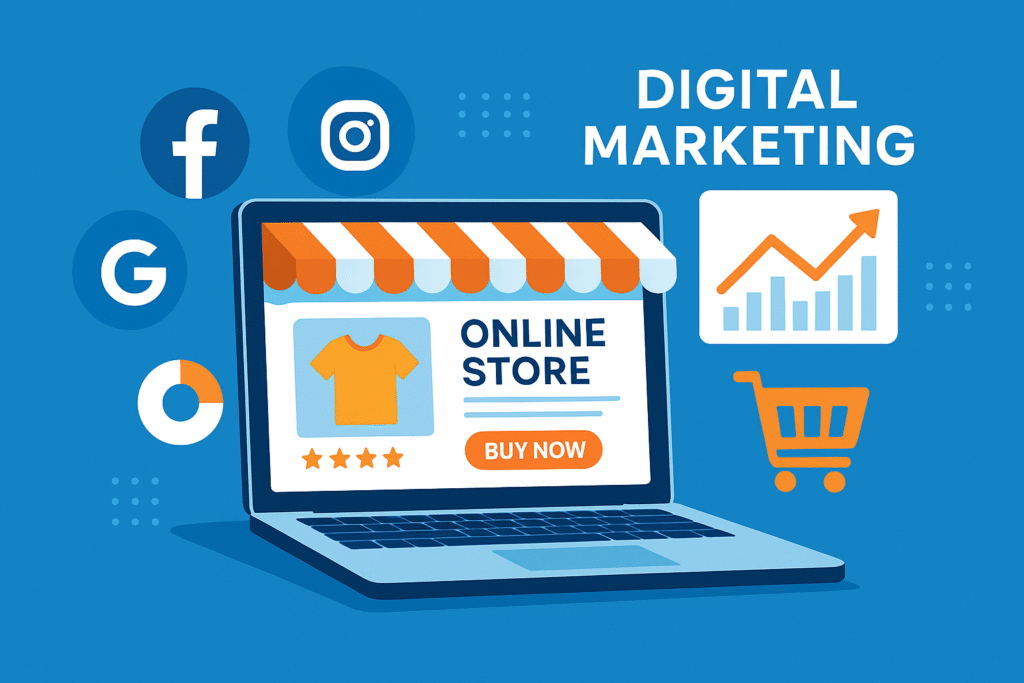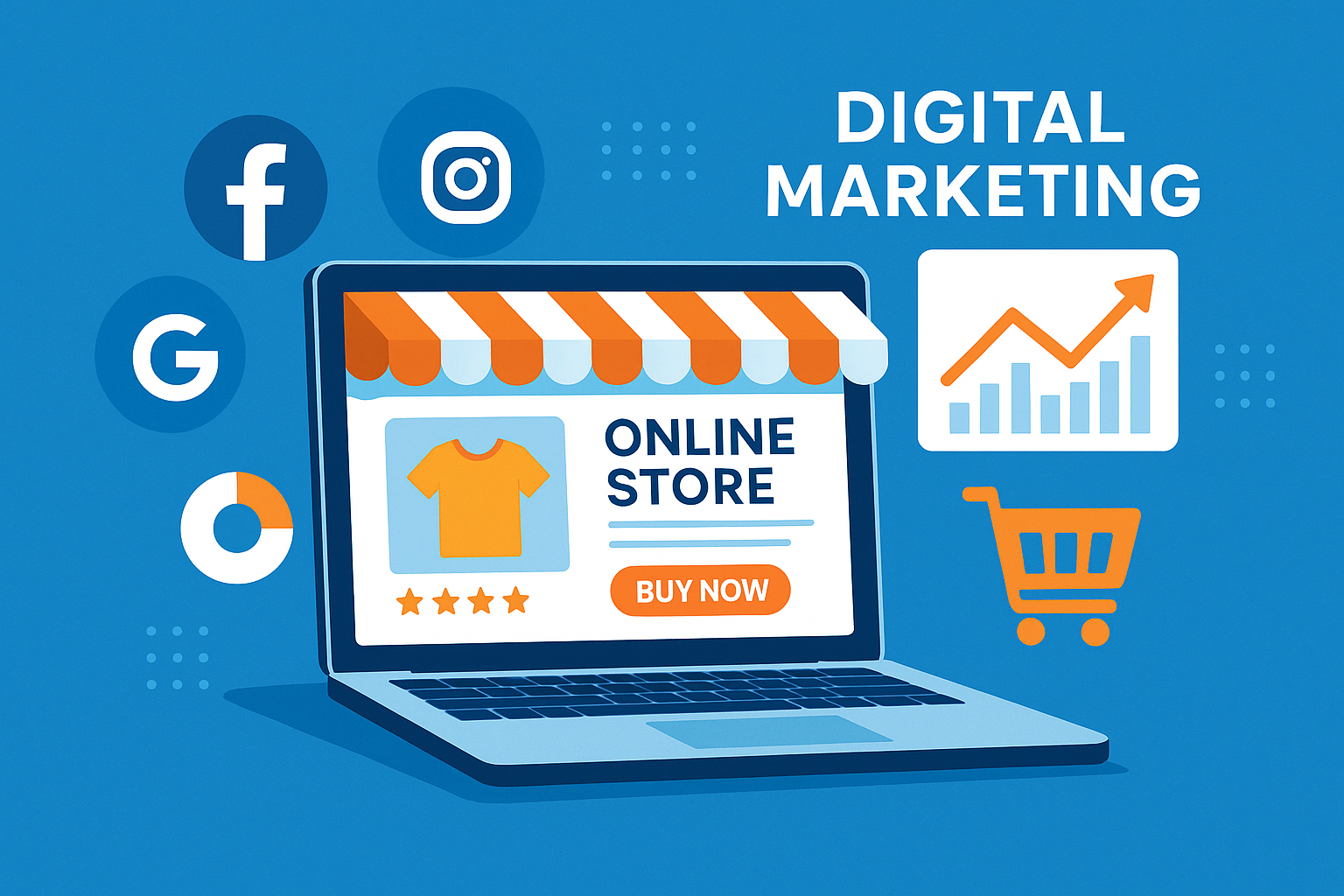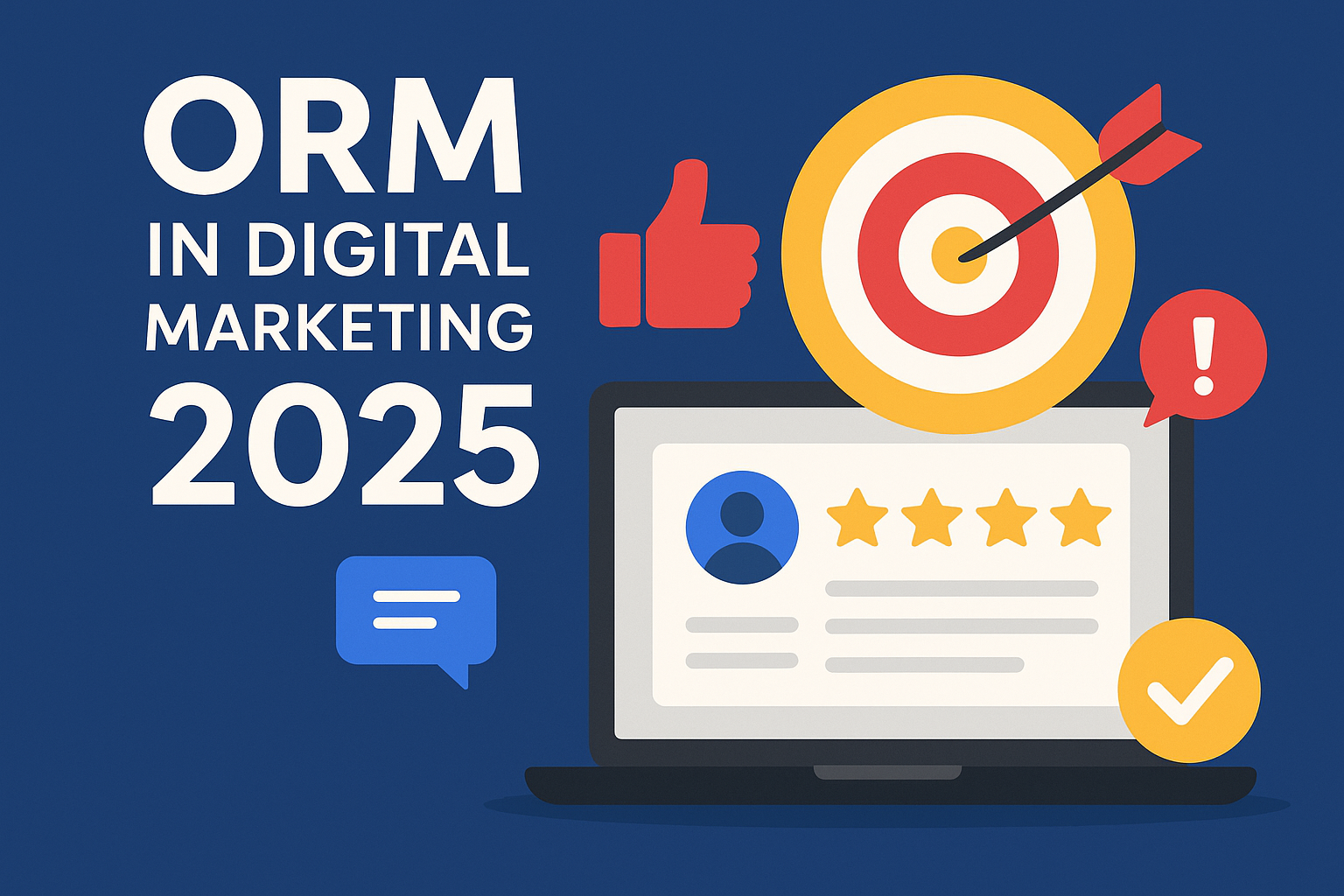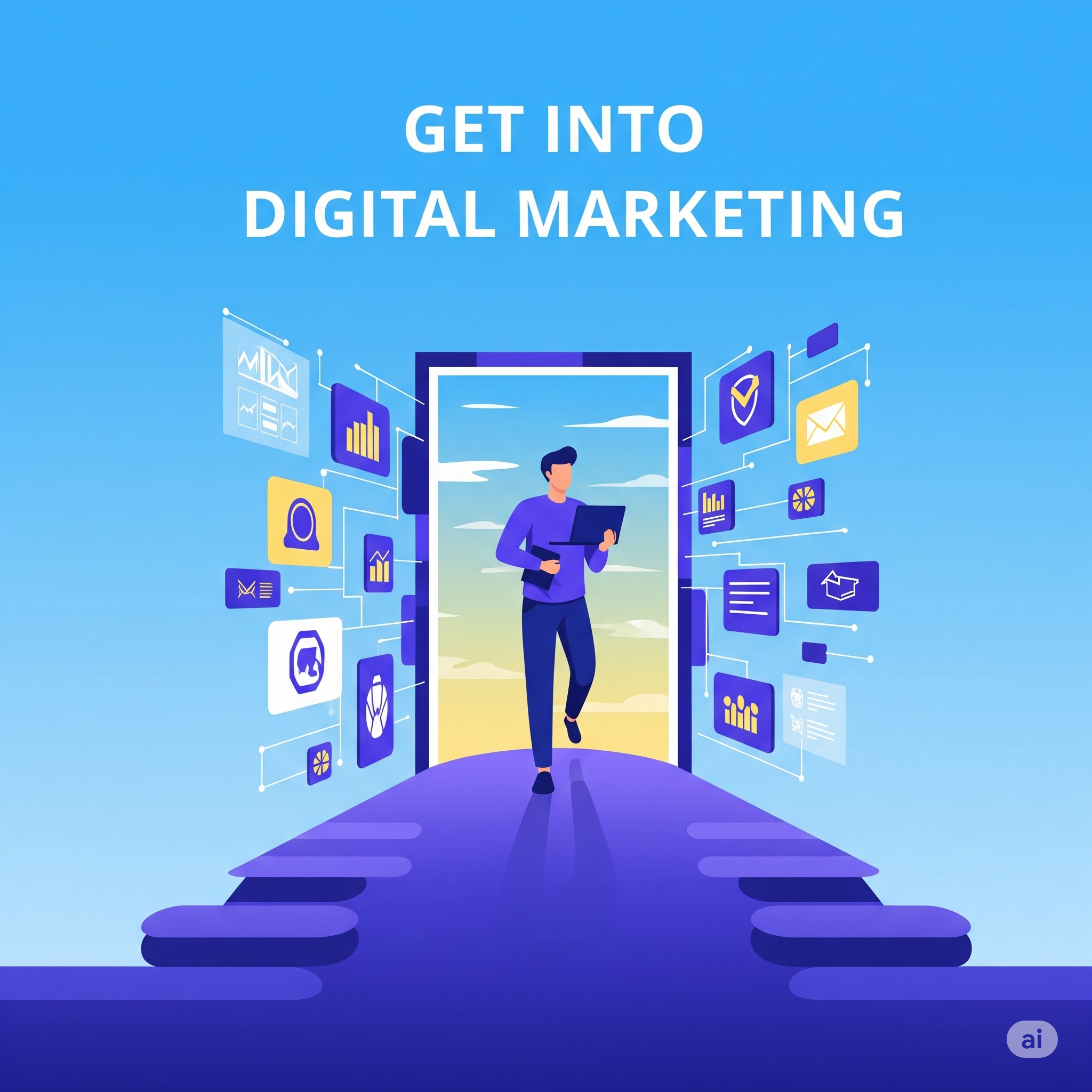In today’s digital-first world, the way people shop has drastically changed. Consumers now prefer the comfort of buying products online rather than walking into physical stores. This rapid shift has made e-commerce one of the fastest-growing industries globally. But to stand out in this competitive space, businesses must adopt digital marketing strategies to boost visibility, build trust, and drive sales.Digital Marketing and E-commerce: The Perfect Combination for Online Success
In this article, we’ll explore how digital marketing and e-commerce work together, the key strategies for success, and how you can build a strong online presence that drives growth
What is E-commerce?
E-commerce (Electronic Commerce) refers to the buying and selling of goods or services through the internet. It includes everything from online shopping websites like Amazon to small businesses selling products through Instagram or their own Shopify stores.
There are four major types of e-commerce models:
- B2C (Business to Consumer): Like Flipkart or Myntra
- B2B (Business to Business): Like Alibaba or IndiaMart
- C2C (Consumer to Consumer): Like OLX or Quikr
- C2B (Consumer to Business): Like freelancers offering services to companies
What is Digital Marketing?
Digital marketing is the use of online platforms and tools to promote products, services, or brands. It helps businesses connect with their target audience using the internet and digital communication tools like:
- Search engines (Google, Bing)
- Social media (Facebook, Instagram, LinkedIn)
- Emails
- Websites
- Mobile apps
The goal is simple: reach the right audience at the right time with the right message

Points
1. Wider Audience Reach
Digital marketing breaks all geographical barriers. You can promote your online store to a global audience 24/7. This helps increase brand awareness and attract potential customers from different locations
2. Cost-Effective Promotions
Compared to traditional advertising like TV or print ads, digital marketing offers cheaper and more targeted options. Even small e-commerce businesses with a limited budget can run successful ad campaigns
3. Improved Customer Engagement
With platforms like Instagram, WhatsApp, and Facebook, businesses can interact with customers in real-time. You can answer questions, handle complaints, or showcase new products instantly.
4. Data-Driven Decisions
Digital marketing tools give access to valuable insights. You can track what’s working, who your buyers are, and how they behave on your website. This helps you make smarter business decisions
5. Boosts Conversion Rate
A well-optimized digital marketing strategy helps convert visitors into paying customers through techniques like remarketing, A/B testing, and personalized content.
Best Digital Marketing Strategies for E-commerce
1. Search Engine Optimization (SEO)
SEO improves your website’s visibility on search engines like Google. The higher your website ranks, the more traffic you’ll get.
Key SEO practices for e-commerce:
- Use keyword-rich product titles and descriptions
- Optimize website speed and mobile-friendliness
- Create SEO-friendly URLs
- Add schema markup for products (price, reviews)
- Regularly publish blogs with relevant keywords
2. Content Marketing
Content marketing involves creating valuable content that attracts and educates your audience. For e-commerce, this can include:
- Product guides
- Comparison blogs
- How-to videos
- Customer testimonials
Pro Tip: Add a blog section on your online store to improve SEO and drive organic traffic.
3. Social Media Marketing
Platforms like Instagram, Facebook, and Pinterest are perfect for showcasing products visually. Use them to:
- Run targeted ads
- Share product photos and videos
- Announce sales and offers
- Collaborate with influencers
Example: A fashion store can post styling videos and use Instagram Stories to show real-time offers.
4. Email Marketing
Email marketing is one of the highest ROI channels for e-commerce. It helps:
- Nurture leads
- Send cart abandonment reminders
- Offer personalized product recommendations
- Announce new arrivals or sales
Use tools like Mailchimp or Klaviyo to automate your email campaigns.
5. Pay-Per-Click (PPC) Advertising
PPC ads appear on search engines and social media platforms. You pay only when someone clicks your ad.
Use Google Ads to target high-buying intent keywords like:
- “Buy running shoes online”
- “Best laptop under ₹50,000”
Also try Facebook and Instagram ads for visual promotions.
6. Affiliate Marketing
With affiliate marketing, influencers or bloggers promote your products in exchange for a commission on sales. This builds credibility and expands your reach to new audiences.
Pro Tip: Offer unique coupon codes to track each affiliate’s performance.
How to Build a Digital Marketing Plan for Your E-commerce Business
Step 1: Define Your Goals
Are you aiming to:
- Increase traffic?
- Boost product sales?
- Grow email subscribers?
Clear goals help shape your entire strategy.
Step 2: Identify Your Target Audience
Create buyer personas by understanding:
- Age
- Location
- Income level
- Online behavior
This helps create personalized marketing messages.
Step 3: Choose the Right Channels
You don’t need to be everywhere. Focus on platforms where your audience spends most of their time.
For example:
- Instagram for fashion and beauty
- Google Ads for electronics
- LinkedIn for B2B products
Step 4: Set a Budget
Decide how much to spend on ads, SEO tools, content creation, etc. Start small, test results, and scale the winning campaigns.
Step 5: Analyze and Optimize
Use tools like:
- Google Analytics
- Facebook Insights
- SEMrush or Ahrefs
Monitor performance and adjust your strategy to improve ROI.
Top Tools for E-commerce Digital Marketing
| Tool | Use |
|---|---|
| Google Analytics | Track website performance |
| SEMrush / Ahrefs | Keyword research & SEO |
| Canva | Create product visuals and social media posts |
| Mailchimp / Klaviyo | Email automation |
| Google Ads | Paid search advertising |
| Shopify Plugins | Marketing apps & tools for your store |
Examples of Digital Marketing in E-commerce
- Nykaa – Uses influencer marketing + YouTube tutorials to promote beauty products
- Amazon India – Strong SEO, paid ads, and affiliate program
- Myntra – Aggressive social media campaigns and personalized push notifications
- Zomato – Email marketing + witty content strategy
Future Trends: Digital Marketing in E-commerce
As technology advances, e-commerce marketing is evolving too. Some future trends include:
- Voice search optimization
- AI-powered chatbots
- Video shopping (Live commerce)
- Augmented Reality (AR) product previews
- Hyper-personalized ads
Businesses that adapt early to these trends will stay ahead in the market.
Conclusion
E-commerce and digital marketing go hand in hand. Without digital marketing, even the best online stores may struggle to attract customers. On the other hand, smart marketing strategies can skyrocket your sales and brand awareness.
Whether you’re a beginner or a growing brand, start with the basics:
- Focus on SEO
- Create helpful content
- Be active on social media
- Send regular emails
- Invest in paid advertising
Remember, success in e-commerce doesn’t happen overnight. Consistency, creativity, and continuous learning are the keys to long-term growth.


